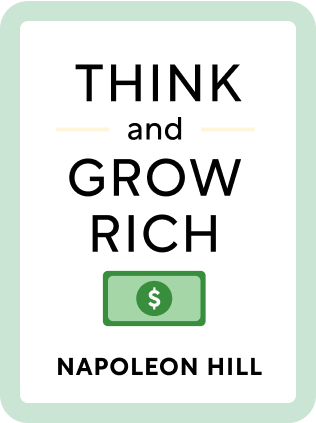

This article is an excerpt from the Shortform book guide to "Think and Grow Rich" by Napoleon Hill. Shortform has the world's best summaries and analyses of books you should be reading.
Like this article? Sign up for a free trial here .
What is the mastermind group in Think and Grow Rich? How can you create your own group?
The mastermind group describes a team of experts who have the specialized knowledge you need to achieve your goal. You can create your group by making a list of people who have the necessary knowledge and experience to help you carry out your plans. These people must be accessible to you.
Read on to discover why the mastermind group of titans of industry like Henry Ford were so crucial in their success.
The Importance of Specialized Knowledge
Knowledge is critical to making better decisions and achieving your goals.
There are two types of knowledge: general and specialized. Colleges provide general knowledge, but often this knowledge lacks practical application. If you want to get rich, the type of knowledge you need is specialized and specific to the particular industry or endeavor you’ve chosen as your path. This is why college degrees aren’t guarantees of career success — formal education should be viewed only as the beginning for acquiring knowledge.
To make progress toward your goal, figure out what sort of specialized knowledge you need, and why you need it. Then figure out how to get it. There are various ways to gain this specialized knowledge, including training programs, books, research and experimentation, and personal experience.
Never stop gaining specialized knowledge related to your goal. Don’t make the mistake of thinking your learning ends when you graduate from school. In fact, much of the practical knowledge that gets you toward your life’s goals comes after school. Combining a hunger for knowledge with imagination will help you adapt to changing times.
The Role of the Mastermind Group
Despite the importance of specialized knowledge, don’t feel like you need to know every necessary piece of knowledge yourself in order to achieve your goal. Instead, you need a Mastermind group — a group of associates who have the knowledge, advice and expertise to help you achieve your goal.
No one has enough experience, education, and ability to accumulate a fortune single-handedly. The Mastermind group you assemble will help you shape a plan for reaching your goal.
The mastermind group assembled by Henry Ford demonstrated their importance to great effect in this incident:
- A newspaper called him “an ignorant pacifist,” and Ford sued.
- In court, the paper’s lawyers tried to argue that the statement was accurate: Ford was indeed “ignorant.” They put Ford on the stand and began asking him trivia questions, like “how many soldiers did the British send to the American colonies in 1776?”
- Ford tired of the questions, and replied that at the touch of a button he could summon someone who could answer any question he had about his business. Why would he clutter his mind with useless general knowledge when he had people around him who could supply any knowledge he demanded?
No matter how much knowledge he contains himself, anyone who knows where to get knowledge when needed is an educated individual. The Mastermind group of Henry Ford had all the specialized knowledge he needed to start an automobile revolution.
The same was true of Andrew Carnegie. He reportedly once said he didn’t know anything about the technical aspects of the steel business, and he didn’t particularly care to — because the Mastermind group he had set up knew everything necessary for making and selling steel.
A group of dedicated minds brainstorming and thinking together can connect and build on one another’s ideas and insights. Together, you and your MasterMind can achieve something greater than any individual could achieve alone.
Both of these examples also illustrate another point — someone who’s had limited formal education should never feel inferior, because specialized knowledge is always accessible. Ford and Thomas Edison had little formal schooling but were hugely successful in their chosen fields because they knew where and how to get the knowledge they needed.
More examples of Masterminds:
- President Franklin D. Roosevelt had a group called his Brain Trust. He brought the best minds in the country to Washington to solve economic problems.
- Ross Perot left IBM to create his own company, Electronic Data Systems (EDS). Although he was discouraged against going out on his own, he assembled a small team of dedicated experts who shared his goal and helped create the company.
Here are the steps to creating a Mastermind group:
- Make a list of people who have the necessary knowledge, experience, and resources to create and carry out the plan that will achieve your goal.
- Decide what you have to offer to people you want in your Mastermind group. No one will join your effort without some kind of benefit or compensation, which can be money or something else.
- Meet with the members of your group twice or more a week, until you come up with a plan or plans for achieving your goal.
- Make it a priority to maintain harmony in the group.

———End of Preview———
Like what you just read? Read the rest of the world's best book summary and analysis of Napoleon Hill's "Think and Grow Rich" at Shortform .
Here's what you'll find in our full Think and Grow Rich summary :
- Napoleon Hill's 1937 guide to success
- How to use thoughts, visualization, and affirmation to achieve wealth
- The importance of a Master Mind group and how to start one






